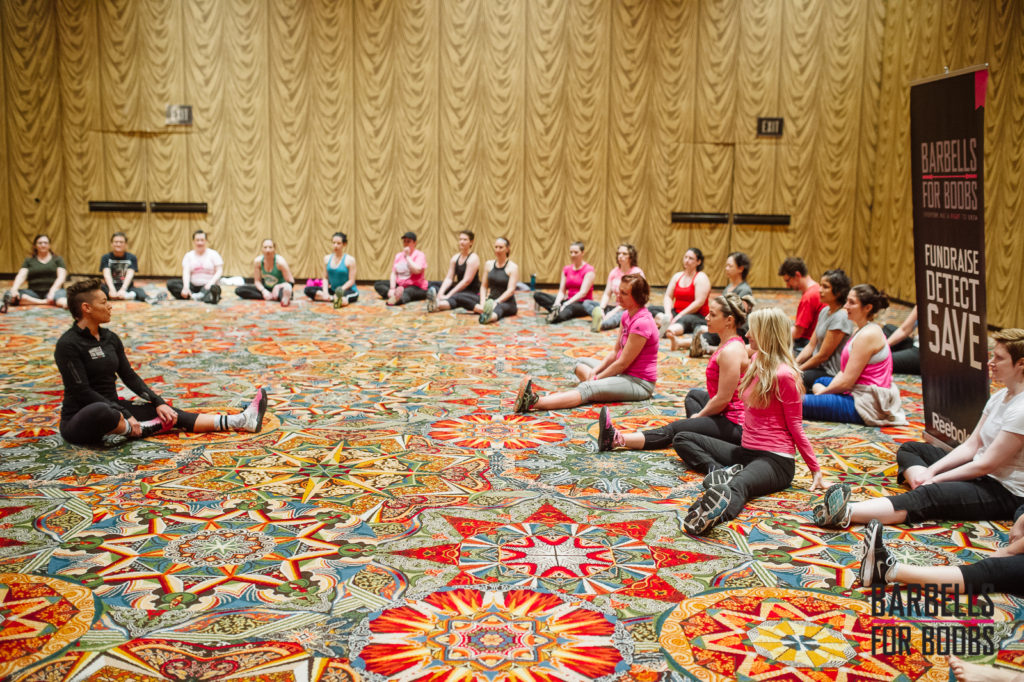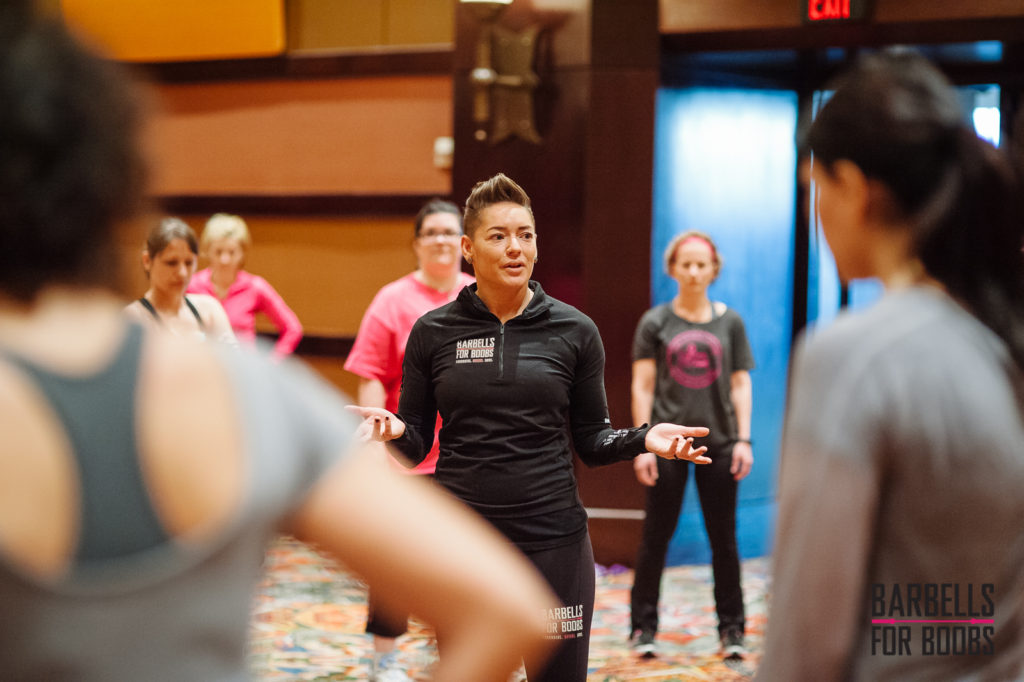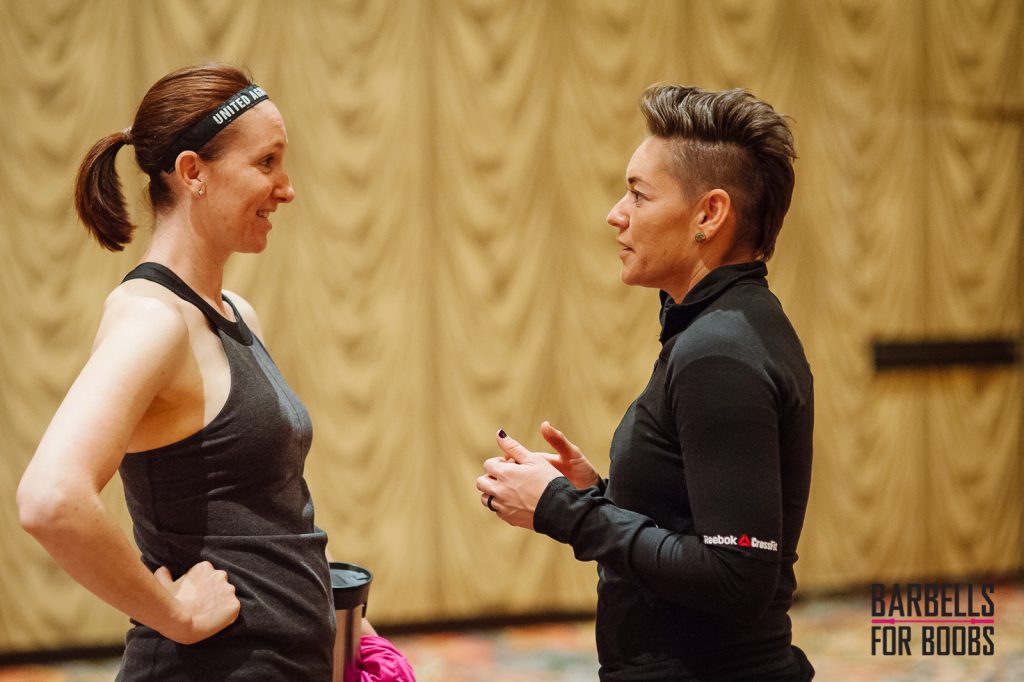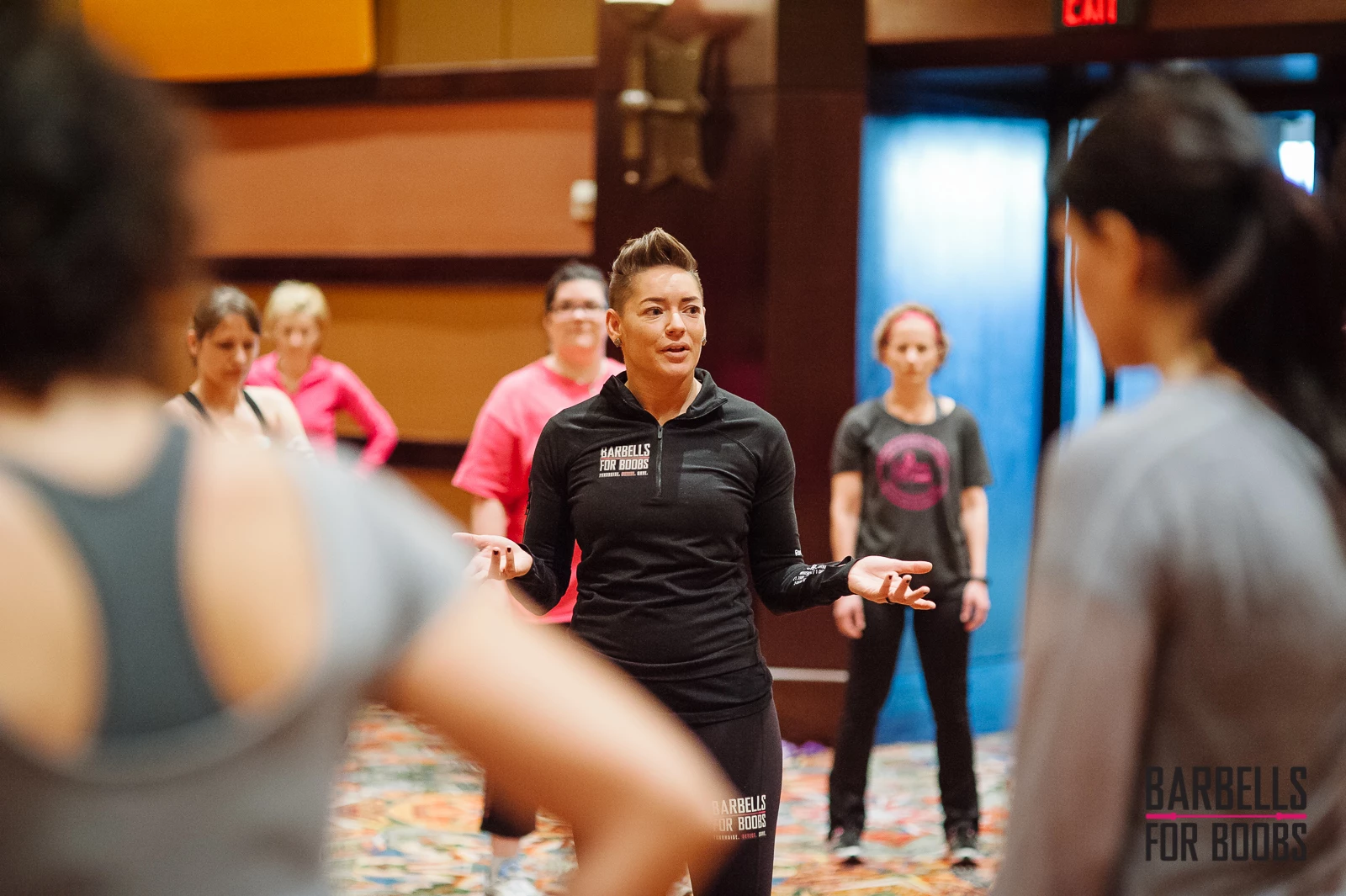
We are born to move.
And when I say move, I mean something as simple as walking two blocks instead of hopping in your car. Exercise is great, but I’m simply referring to an active vs. sedentary lifestyle.
According to the research of Dr. Oliver Glass at Duke University, women with early stage breast cancer that are physically active post-diagnosis have a 30% reduction in breast cancer specific mortality and a 25% reduction in breast cancer recurrence compared to sedentary women.
So let me ask you this, when you approach escalators and stairs, do you automatically pick the escalator? Maybe it’s something you’ve never thought about, or maybe you decided “I’m just too tired today.” That wasn’t your body telling you that, that was your mind.

So, let’s take it a step farther and talk about exercise. Sami Mansfield, an Oncologist Exercise Specialist from The University of Kansas Cancer Center says, “Exercising during treatment, to recover from surgeries is a key piece of survivorship.”
I can’t count the times I have witnessed people overthink exercise and fitness. When you break it down, it’s just movement. It’s simple decisions you make every day to be better. You’re allowing your body to do what it was meant to do.
Fitness and nutrition is 90% mental. I always say, showing up and warming up is the hardest part of my training. You have the right to test your muscular and skeletal structure. You just have to mentally say yes.

I’m not saying you should start training like an Olympian. You know your body better than anybody else. Listen to it and consult a medical professional. An exercise plan for a young women after a diagnosis should be as personalized as her cancer treatment plan.
My background is in weightlifting, and I’m not going to lie, that’s a really intimidating place to start. Trust me, I’ve been there. I was intimidated by the barbell. I was intimidated by the gym. Mainly, because I didn’t know what to do and I didn’t want to look stupid. But after conquering my fears, I learned that movement is an art. Movement is something that I’m supposed to do.
I’m here to challenge you to not be scared of returning to the life you knew pre-diagnosis and to not use cancer as a crutch. My challenge to you is in regard to your mental approach. I’m not saying to be a rebel and ignore everything the medical experts or your oncologists tell you. I’m challenging you to ask yourself, “Can I do this? Am I capable? Am I just being lazy? Am I making excuses?”
Ask yourself those questions when you see an opportunity to move, and be conscious of it. You’ll be surprised once you do. You’ll start to realize how many opportunities a day you can challenge yourself without even going into a gym.

Exercise is the one thing you can give yourself every single day. It’s something that cancer can never take away from you. So, if you’re not sure where to start, it’s as simple as hitting the pavement and moving.
Change your mindset, challenge your body, and just move.
You can get started by studying great movement patterns. I highly recommend watching the squat contraption video from my friends at Vaughn Weightlifting. The squat is for everyone. If you want to move better, you are going to have to invest some time in studying it. Stay tuned for more to come on post diagnosis and treatment movement!
A huge thank you to Zionna Hanson of Barbells for Boobs for working with us for National Women's Health Week! Don't forget to check out the other awesome resources there were provided this week and join the conversation on Facebook and Twitter.
YSC also offers a number of fitness resources including audio presentations from past conferences. You can listen in and review the presentations under "Nutrition and Physical Wellness."




